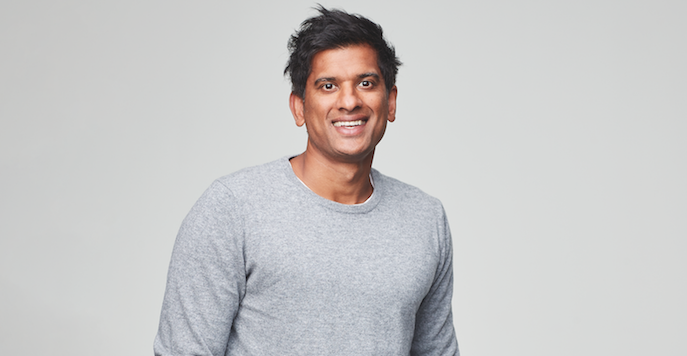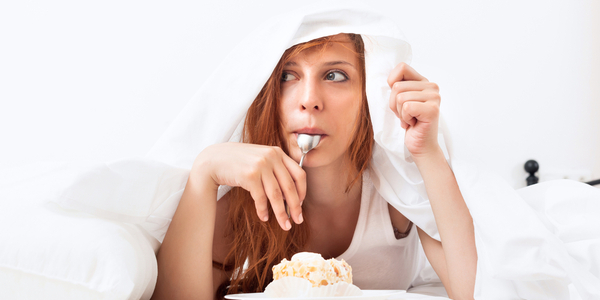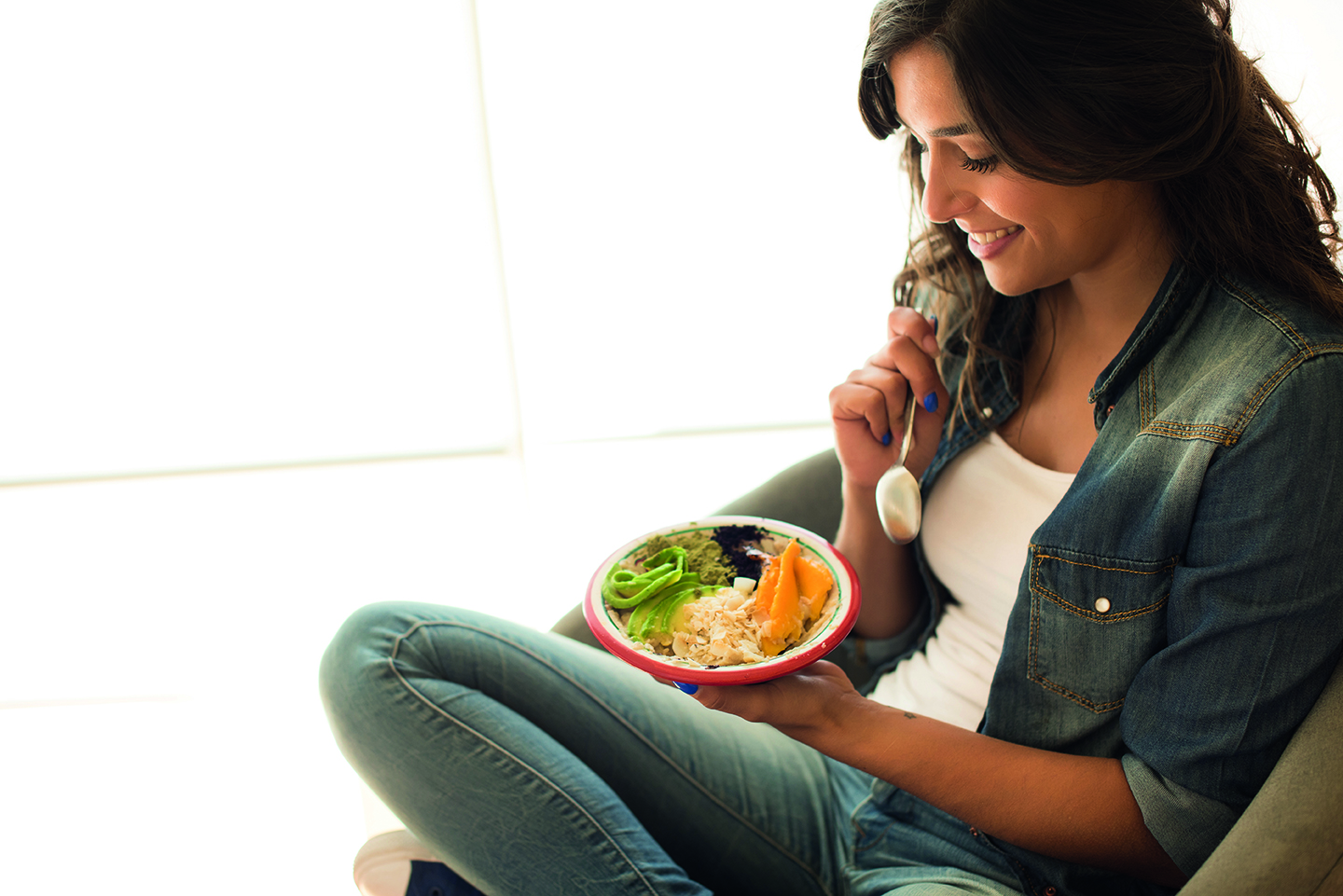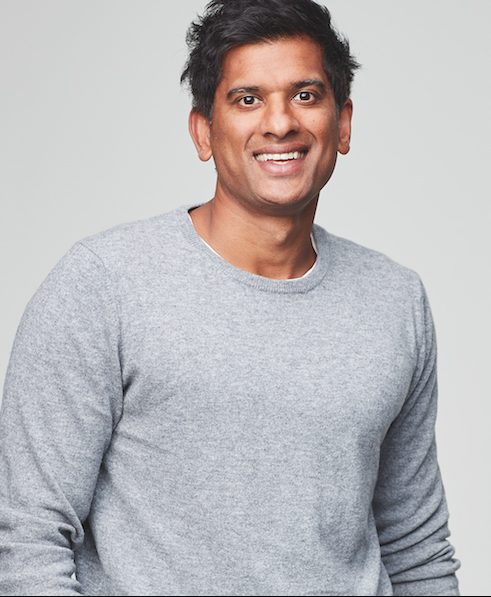 To lose weight it’s crucial to look at your whole lifestyle, including your emotions, not just what you eat. This is according to Dr Rangan Chatterjee, who speak to Top Santé editor Katy Sunnassee about his new book Feel Great Lose Weight, and how the holistic, down-to-earth approach is designed to help people stay healthy for life.
To lose weight it’s crucial to look at your whole lifestyle, including your emotions, not just what you eat. This is according to Dr Rangan Chatterjee, who speak to Top Santé editor Katy Sunnassee about his new book Feel Great Lose Weight, and how the holistic, down-to-earth approach is designed to help people stay healthy for life.
Weight loss myths busted
The common narrative around weight loss is that if you burn more calories than you consume, you lose weight. While technically, at a scientific level, if you burn off more calories than you body consume you’ll probably be losing weight, this is overly simplistic.
We are complex, interconnected systems, so even if you “burn off” more calories by exercising, your body can compensate and use fewer in other areas.
 Exercise to feel good not just lose weight
Exercise to feel good not just lose weight
Movement should be done, in my view, not to “burn calories”, but to feel good. When you move, you are sending your body a signal that you are an active, thriving human engaging with life.
When we reduce food and movement down to just calories and energy, it’s not just unhelpful, I think it’s actively damaging.
I talk in the book about a guy who remembered being on holiday as an 11-year-old and going to the gym with his dad.
At the end of the session he had used up 300 calories or so the treadmill told him. His dad said, “Son, you’ve just earned yourself a Mars bar”.
This began 20 years of a toxic relationship with food and exercise, as his dad inadvertently gave him the message that movement only had value in terms of earning your food.
Junk food is addictive
A lot of people don’t realise that processed foods cause dopamine to spike. I call these “blissy foods” – ones that make you feel good in the moment, such as chocolate and crisps. Blissy foods tend to have addictive qualities.
They often contain a combination of fat, sugar and salt and they spike dopamine big time in your brain. What that teaches you, is that next time you feel hungry or perhaps sad, you unconsciously think, “That food gives me a dopamine hit so I’ll feel better”.
You’re conditioning yourself to repeat the behaviour, often to the point that even the sight or smell of the food can result in a dopamine spike.
There’s a lady in the book who’s trying her best to eat well and lose weight but at the end of the day she gets to a roundabout and just can’t resist the smell of the fried chicken. So she pulls in and buys some, then beats herself up and thinks she’s a failure.
I suggested she take a different route home – that one simple thing has changed her life. Now she’s not fighting temptation. She gets home, starts eating better, starts sleeping better, she’s got more energy and she’s been able to lose weight.
 We eat to suppress difficult emotions and deal with stress
We eat to suppress difficult emotions and deal with stress
One of my favourite phrases in the book is, “We used to eat to fill a hole in our stomachs, now we eat to fill a hole in our hearts.” Most people don’t need me to tell them that eating a packet of digestives or a huge tub of ice cream each evening is not healthy.
It’s not what they eat that is the problem, its why they’re eating it. The thing I think the Government and also the World Health Organisation is missing in their health advice is that it’s not as simple as just what you eat, it’s also why, how and where.
I don’t know anyone who doesn’t have some habit or other that they use to cope with emotions. I include myself in that – I’ve eaten, frankly, a lot of sugar during this pandemic.
It’s not rational, it’s emotional, and emotion is always going to beat logic when it comes to our behaviour. Research from Stress America tells us 80 per cent of people change their eating behaviour in response to stress: 45 per cent eat more, 35 per cent eat less.
So that’s nearly half the population eating more in response to stress. And last year was one of the most stressful and anxiety-inducing years in living memory for most people – is it any wonder most people have put on weight?
Eating comfort food is a natural response to stress for half of us. If you’re one of those people, you will probably put on weight.
And the science backs this up; we know that when you’re chronically stressed, your body feels as if it’s under attack – there many be a famine coming so you’re going to hold onto weight.
So it’s not about guilt, shame or willpower, it’s about recognising what you are going through.
 To lose weight you need to sleep well
To lose weight you need to sleep well
It’s very hard to lose weight if you’re not sleeping well. Some people simply need to address their sleep. Why? When you don’t sleep well, you consume 22 per cent more the next day.
Over five days of not sleeping well, you will consume an extra day’s worth of calories. Lack of sleep messes up levels the hormones lectin and ghrelin.
Ghrelin, a hunger hormone, goes through the roof, meaning you’re hungrier the next day. Lectin, which tells your body you’re full, goes way down. So basically you feel hungrier and you never feel full!
And what do you often crave when you haven’t slept well? You’re not craving fruits and vegetables, you’re craving sugar, right?
And lack of sleep also makes it harder to resist temptation. So, for some people, they don’t even need to change their diets, they simply have to sort out their sleep.
Helping others not only lose weight but change their lives
I like to think my new book is helping people to be detectives in their own lives, with me holding their hands along the way. I always use case studies so people can hopefully recognise some of themselves in them, and think “Gosh that patient sounds just like me, I might try that!’ there’s always a different approach for each person as we’re all individuals, yet far too many books provide just one approach.
 How to quit comfort eating to lose weight
How to quit comfort eating to lose weight
One of my favourite exercises in the entire book is called The Three Fs, and I think it’s life-changing for anyone. It’s helped me figure out why I might binge on social media one evening or eat too much sugar. It can help anyone, overweight or not.
- FEEL: Next time you have a craving, take a quick pause to think “What am I feeling? Is it hunger, or is it something else? Have I had a stressful day? Have I been on Zoom calls all day and not been outside? Have I just had a row with my partner?
Has the children’s bedtime gone on too long and I feel exhausted and want to treat myself?” You don’t have to change the behaviour, you just need to bring an awareness to it.
Once you have identified why you want to eat, great – and you can still eat what you wanted! Just know that it’s not physical hunger, it’s emotional hunger. - FEED: The second F is feed – how does the snack you choose feed that feeling? Perhaps you felt overwhelmed with too much work and it was just your little treat to yourself, or you had a row with your partner or felt unsupported by them, and felt really crappy so you ate half a packet of digestives and felt better.
Again, this is not about changing anything, it’s just bringing a bit of awareness into what’s going on. - FIND: Now you know the feeling and how the snack is feeding that feeling, you can find another behaviour to feed the feeling – one that isn’t food-based. It may be you need a cuddle with your husband, or to stroke your pet because you’re feeling a bit lonely; maybe you need to phone your mum or one of your best mates; maybe you need to run a bath and nourish yourself for 20 minute; maybe you put on a feel-good tune and dance around your kitchen. Or perhaps it’s about moving to a different room – it could be that you associate sitting on the sofa with snacks, so maybe sit in a different room – anything to break that cycle.
Feel Great Lose Weight is out now








